January 15, 2015 •
Sudbury, Ontario By-Election Coming February 5
A by-election will be held on February 5 to select a representative for the Legislative Assembly of the Province of Ontario, Canada, for the Electoral District of Sudbury. The by-election was announced on January 7 by Chief Electoral Officer Greg […]
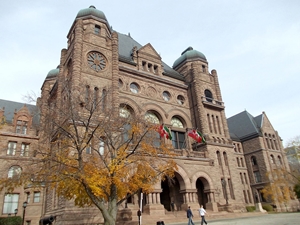 A by-election will be held on February 5 to select a representative for the Legislative Assembly of the Province of Ontario, Canada, for the Electoral District of Sudbury. The by-election was announced on January 7 by Chief Electoral Officer Greg Essensa.
A by-election will be held on February 5 to select a representative for the Legislative Assembly of the Province of Ontario, Canada, for the Electoral District of Sudbury. The by-election was announced on January 7 by Chief Electoral Officer Greg Essensa.
The campaign period for candidates began on January 7 and will end on May 5.
Photo of the Ontario Legislative Building by Andrijko Z. on Wikimedia Commons.
January 9, 2015 •
New Brunswick’s Long Awaited Lobbyist Registry Still on Hold
Premier Brian Gallant has again questioned a long running delay in implementing a lobbyist registry in the province. The Legislative Assembly in New Brunswick passed the Lobbyists’ Registration Act in May but, in order to take effect, the cabinet must […]
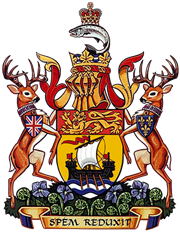 Premier Brian Gallant has again questioned a long running delay in implementing a lobbyist registry in the province. The Legislative Assembly in New Brunswick passed the Lobbyists’ Registration Act in May but, in order to take effect, the cabinet must first proclaim the act and promulgate regulations for its operation.
Premier Brian Gallant has again questioned a long running delay in implementing a lobbyist registry in the province. The Legislative Assembly in New Brunswick passed the Lobbyists’ Registration Act in May but, in order to take effect, the cabinet must first proclaim the act and promulgate regulations for its operation.
The act is similar to the federal government and other provinces in requiring lobbyists to register publicly, disclose who they represent as well as who they meet with and what topics are discussed.
It has been seven years since Premier Shawn Graham first initiated a push for a law regulating lobbyists.
December 29, 2014 •
Canada Consultation Period Ends for Revised Lobbyists’ Code
The consultation period for review of the Revised Lobbyists’ Code of Conduct has ended. Commissioner of Lobbying Karen Shepherd drafted the revisions and invited comment on the proposed changes to be submitted by December 19, 2014. The changes focus on […]
The consultation period for review of the Revised Lobbyists’ Code of Conduct has ended.
Commissioner of Lobbying Karen Shepherd drafted the revisions and invited comment on the proposed changes to be submitted by December 19, 2014. The changes focus on the relationship between lobbyists and public officials, while removing rules relating to the relationship between lobbyists and clients.
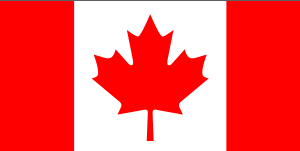 New rules prohibit a lobbyist from lobbying a public official if the lobbyist has campaigned for or has business interests with the public official. New gift regulations hold a lobbyist responsible for giving a gift the public official is not allowed to accept.
New rules prohibit a lobbyist from lobbying a public official if the lobbyist has campaigned for or has business interests with the public official. New gift regulations hold a lobbyist responsible for giving a gift the public official is not allowed to accept.
Once Shepherd finalizes the revisions, they will be referred to the House of Commons Standing Committee on Access to Information, Privacy, and Ethics, before being published in the Canada Gazette. The current version of the Lobbyists’ Code of Conduct remains in place until the revised code comes into effect.
Image of Canadian Flag by Djameson1983 on Wikimedia Commons.
December 17, 2014 •
Alberta Accountability Act Passes House and Awaits Royal Assent
Minister of Justice and Solicitor General Jonathan Denis recently introduced the Alberta Accountability Act to ensure high ethical standards and to enhance accountability on behalf of elected officials and public servants. Among other changes, the legislation revises post-employment restrictions, increases […]
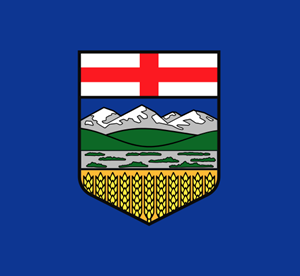 Minister of Justice and Solicitor General Jonathan Denis recently introduced the Alberta Accountability Act to ensure high ethical standards and to enhance accountability on behalf of elected officials and public servants.
Minister of Justice and Solicitor General Jonathan Denis recently introduced the Alberta Accountability Act to ensure high ethical standards and to enhance accountability on behalf of elected officials and public servants.
Among other changes, the legislation revises post-employment restrictions, increases consistency in conflict of interest rules, clarifies gift rules, eliminates the majority of sole-source contracts, and expands the authority for the Alberta Ethics Commissioner.
The Act passed the House and is currently awaiting Royal Assent.
December 10, 2014 •
Ontario Passes Bill Amending Lobbying Laws
On December 9, the Legislative Assembly of Ontario passed an omnibus bill that includes changes to the province’s Lobbyists Registration Act, 1998. Schedule 8 of Bill 8, the Accountability and Transparency Act, gives the Ontario Integrity Commissioner as Lobbyist Registrar […]
 On December 9, the Legislative Assembly of Ontario passed an omnibus bill that includes changes to the province’s Lobbyists Registration Act, 1998.
On December 9, the Legislative Assembly of Ontario passed an omnibus bill that includes changes to the province’s Lobbyists Registration Act, 1998.
Schedule 8 of Bill 8, the Accountability and Transparency Act, gives the Ontario Integrity Commissioner as Lobbyist Registrar more enforcement power for violations. Individuals found in violation can be prohibited from lobbying for up to two years. Among other changes, the bill creates a 50 hour per year threshold of lobbying activity to meet the Act’s definition of in house lobbyists.
Schedule 8 comes into force on a day to be named by proclamation of the Lieutenant Governor.
Photo of the Ontario Legislative Assembly Building by Andrijko Z. on Wikimedia Commons.
October 28, 2014 •
Toronto’s Rob Ford Wins Again
Toronto Mayor Rob Ford won another election last night in Toronto, albeit for the Ward 2 City Council seat he occupied before becoming mayor. The incumbent mayor’s brother, Doug Ford, lost his own bid to be the next mayor of […]
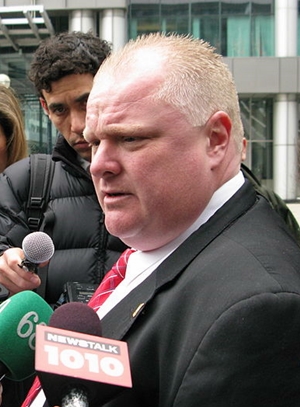 Toronto Mayor Rob Ford won another election last night in Toronto, albeit for the Ward 2 City Council seat he occupied before becoming mayor. The incumbent mayor’s brother, Doug Ford, lost his own bid to be the next mayor of the city against John Tory, the Progressive Conservative candidate.
Toronto Mayor Rob Ford won another election last night in Toronto, albeit for the Ward 2 City Council seat he occupied before becoming mayor. The incumbent mayor’s brother, Doug Ford, lost his own bid to be the next mayor of the city against John Tory, the Progressive Conservative candidate.
According to CBC News Toronto, Rob Ford, who withdrew from the mayoral race earlier this year due to illness, said, “I can assure you, I’ll be taking care of my health and I’ll be taking care of the people in Etobicoke North and I’ll continue to take care of every taxpayer in this city, like I always have.”
Photo of Rob Ford by West Annex News on Wikimedia Commons.
October 27, 2014 •
Canada Commissioner of Lobbying Announces Proposed Changes
Commissioner of Lobbying Karen Shepherd has drafted a revised Code of Conduct and invited written submissions on the proposed revisions. The changes focus on the relationship between lobbyists and public officials, while removing rules relating to the relationship between lobbyists […]
 Commissioner of Lobbying Karen Shepherd has drafted a revised Code of Conduct and invited written submissions on the proposed revisions. The changes focus on the relationship between lobbyists and public officials, while removing rules relating to the relationship between lobbyists and clients.
Commissioner of Lobbying Karen Shepherd has drafted a revised Code of Conduct and invited written submissions on the proposed revisions. The changes focus on the relationship between lobbyists and public officials, while removing rules relating to the relationship between lobbyists and clients.
New rules would prohibit a lobbyist from lobbying a public official if the lobbyist has campaigned for or has business interests with the public official. New gift regulations would hold a lobbyist responsible for giving a gift the public official is not allowed to accept.
Once Shepherd finalizes the revisions, they will be referred to the House of Commons Standing Committee on Access to Information, Privacy, and Ethics, before being published in the Canada Gazette.
October 23, 2014 •
Canadian Parliament Emerges from Shootings
Parliament and parts of the capital are emerging from a security lockdown following shootings at the National War Memorial and inside the Parliament building. A soldier guarding the memorial has died from his injuries, as well as a gunman. Prime […]
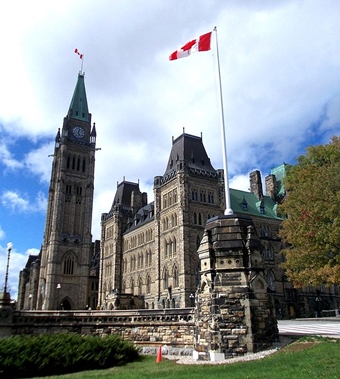 Parliament and parts of the capital are emerging from a security lockdown following shootings at the National War Memorial and inside the Parliament building.
Parliament and parts of the capital are emerging from a security lockdown following shootings at the National War Memorial and inside the Parliament building.
A soldier guarding the memorial has died from his injuries, as well as a gunman. Prime Minister Stephen Harper was addressing his Cabinet at the time, but left Parliament Hill safely.
The House of Commons is meeting today, Thursday, October 23, 2014, at 10:00 a.m.
Photo of the Parliament Centre Block by Adrijko Z. on Wikimedia Commons.
October 20, 2014 •
Ontario Assembly to Convene Today
Today the Legislative Assembly of Ontario, Canada, will convene for the first session of the 41st Parliament. The assembly had adjourned its session with unanimous consent on July 24, 2014, in order to continue to work over the summer to […]
 Today the Legislative Assembly of Ontario, Canada, will convene for the first session of the 41st Parliament.
Today the Legislative Assembly of Ontario, Canada, will convene for the first session of the 41st Parliament.
The assembly had adjourned its session with unanimous consent on July 24, 2014, in order to continue to work over the summer to address budget issues.
Photo of the Ontario Legislative Assembly Building by Andrijko Z. on Wikimedia Commons.
October 17, 2014 •
Saskatchewan By-Election Scheduled for Nov. 13
A by-election is scheduled in Saskatchewan for November 13, 2014, to elect a member of the Legislative Assembly from the Lloydminster riding. The polls in Lloydminster will be open from 9 a.m. to 8 p.m. on election day.
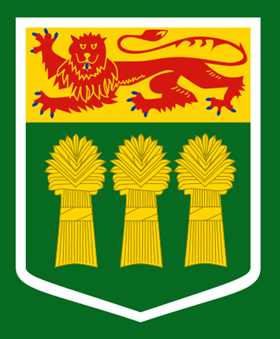 A by-election is scheduled in Saskatchewan for November 13, 2014, to elect a member of the Legislative Assembly from the Lloydminster riding.
A by-election is scheduled in Saskatchewan for November 13, 2014, to elect a member of the Legislative Assembly from the Lloydminster riding.
The polls in Lloydminster will be open from 9 a.m. to 8 p.m. on election day.
October 14, 2014 •
Yukon Legislative Assembly to Meet October 23
The fall sitting of the first session of the 33rd Yukon Legislative Assembly will convene on Thursday, October 23, 2014. The assembly will adjourn on a date to be determined.
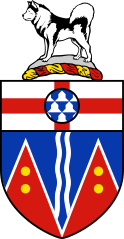 The fall sitting of the first session of the 33rd Yukon Legislative Assembly will convene on Thursday, October 23, 2014.
The fall sitting of the first session of the 33rd Yukon Legislative Assembly will convene on Thursday, October 23, 2014.
The assembly will adjourn on a date to be determined.
October 6, 2014 •
British Columbia, Canada Begins Third Session of 40th Parliament Today
The Legislative Assembly of British Columbia resumes today at noon for the prorogation of the second session of the 40th Parliament. The third session of the 40th Parliament will then open at 1:30 p.m. The third session is scheduled to […]
 The Legislative Assembly of British Columbia resumes today at noon for the prorogation of the second session of the 40th Parliament. The third session of the 40th Parliament will then open at 1:30 p.m. The third session is scheduled to adjourn on November 27, 2014.
The Legislative Assembly of British Columbia resumes today at noon for the prorogation of the second session of the 40th Parliament. The third session of the 40th Parliament will then open at 1:30 p.m. The third session is scheduled to adjourn on November 27, 2014.
Photo of the British Columbia Legislature Building by Ryan Bushby on Wikimedia Commons.
September 8, 2014 •
New Integrity Commissioner for Toronto, Canada
Valerie Jepson began her term as the city’s new integrity commissioner on September 6. Jepson, whose appointment was approved by the City Council in June, replaces Janet Leiper, the commissioner since 1999. Jepson was counsel for the Office of the […]
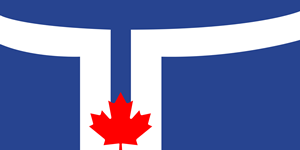 Valerie Jepson began her term as the city’s new integrity commissioner on September 6. Jepson, whose appointment was approved by the City Council in June, replaces Janet Leiper, the commissioner since 1999. Jepson was counsel for the Office of the Ontario Integrity Commissioner since 2007.
Valerie Jepson began her term as the city’s new integrity commissioner on September 6. Jepson, whose appointment was approved by the City Council in June, replaces Janet Leiper, the commissioner since 1999. Jepson was counsel for the Office of the Ontario Integrity Commissioner since 2007.
August 6, 2014 •
Quebec Develops Searchable Database for Election Law Violators
Lucie Fiset, the chief electoral officer of Quebec, plans to set up a searchable online registry for accused violators of the province’s election laws. The database is slated to be operational by March 2015. This initiative is part of Fiset’s […]

Lucie Fiset, the chief electoral officer of Quebec, plans to set up a searchable online registry for accused violators of the province’s election laws. The database is slated to be operational by March 2015. This initiative is part of Fiset’s broader strategic plan to promote transparency and tighten surveillance of political contributions and election spending.
Recently, the province has been examining links between public construction contracts, organized crime, and provincial and municipal political contributions after investigators testified about a political financing scheme involving straw men contributing to political parties using money from a third party, thus skirting contribution limits, residency requirements, and the ban on contributions from entities.
With the new database, the public and the media will be able to search or cross-reference charges against individuals, companies, organizations, and parties accused of violating election laws.
State and Federal Communications, Inc. provides research and consulting services for government relations professionals on lobbying laws, procurement lobbying laws, political contribution laws in the United States and Canada. Learn more by visiting stateandfed.com.


